Koreans Should "Just Look Up"
This essay originally appeared in Korean on March 4 in Sindonga (New East Asia), Korea’s oldest monthly magazine (established 1931), as part of a monthly column, "Shin’s Reflections on Korea." Translated by Raymond Ha. A PDF version of this essay is also available to download.
This winter, Koreans struggled with the bitter cold amidst a surge in heating costs. It has already been said many times, but climate change and the energy crisis are no longer abstract issues to be dealt with in the future. Northern California, where I live, was drenched and battered by intense storms this winter. The Midwest and the East Coast experienced brutal cold waves and heavy snow. Mount Washington in New Hampshire, close to the Canadian border, “recorded the coldest wind chill in the history of the United States” in early February at -108.4ºF.1 Europe was spared the worst due to an unusually warm winter, but the energy crisis sparked by the Russia-Ukraine War still poses a vexing challenge.
As the world emerges from the worst of the COVID-19 pandemic, it faces a series of interrelated challenges—climate change, wars, the energy crisis, inflation, Sino-U.S. tensions, a crisis of democracy, and a crisis of political leadership. Each one of these problems is formidable on its own, but they are inextricably bound together like a Gordian knot. It is hard to know where to begin. Untangling this knot will require not only cooperation between Washington and Beijing, but also broader multilateral coordination. Simply severing the knot is not a feasible solution. Reflecting this complex state of affairs, the theme of this year’s World Economic Forum at Davos, Switzerland was “Cooperation in a Fragmented World.”
Korea cannot afford to remain a bystander to climate change. Energy security is a critical issue for Seoul, as Korea is highly dependent on energy imports. Climate change and energy security are also at the heart of the United Nations’ emphasis on sustainability, and addressing them will require international cooperation based on coherent, consistent policies at the national level. It is encouraging to note that the Yoon Suk-Yeol administration has proclaimed carbon neutrality as a policy goal while also emphasizing Korea’s energy security. These issues transcend ideological divides and party lines. They are a matter of national survival. The Yoon administration has put forth a vision of values-based diplomacy based on partnerships with liberal democracies, but it must also be more proactive in facilitating international cooperation on climate change and energy issues. There is no time to lose, and Korea’s international stature demands that it play a greater role.
When It Rains on Greenland’s Glaciers
During a recent visit to a winery in Napa Valley, I asked the owner for his thoughts about the most serious threat or challenge that the winery would face in the next 20 to 30 years. I assumed he would mention fire, given the devastating fires the region has experienced in the past few years. Without any hesitation, however, he said it was climate change. Even a one-degree Celsius increase in the temperature would necessitate a substantial change in the variety of grapes he could grow. If current trends persist, he added, Oregon or Washington will become the center of wine production on the West Coast.
There are similar changes occurring in Europe. Grape-harvesting regions are gradually moving north, with one study concluding that the United Kingdom could have the best climate for grape production in 20 years.2 The UK currently has lower average temperatures and shorter summers than France or southern Europe, but this could change by 2040. According to Debbie Inglis, the director of the Cool Climate Oenology and Viticulture Institute in Canada, “a 2ºC global increase in temperature could remove 55% of wine growing regions worldwide and 4ºC could remove over 70% of these regions from production.”3
Coffee—beloved by many Koreans—will also be affected by climate change. A recent study by researchers at the University of Zürich reported that the regions suitable for coffee production “could be cut in half by 2050.”4 A study published by the National Academy of Sciences concluded that an increase in surface-level temperatures of 2ºC or greater could reduce coffee production in Latin America by up to 88%.5 In addition, the International Coffee Organization found that 70% of the land suitable for coffee production in Southeast Asia will disappear by 2050. Coffee beans, the most commonly traded item after oil, are presently cultivated in over 60 countries. If coffee production falls as a result of climate change, we may soon witness coffee rationing and even international disputes over coffee.
Climate change will disrupt every aspect of our daily lives, and the pace and intensity of this disruption only continues to grow. Fort Smith in Canada is located north of the 60th parallel and usually remains cool during the summer, but it reached nearly 104ºF in 2021, breaking an 80-year record.6 The Summit Station, located at the highest point of Greenland’s glaciers, saw rain for the first time in recorded history in August 2021.7 There were 97 tropical storms last year, including typhoons and hurricanes. Headlines about record flooding, unprecedented droughts, and extreme heatwaves are becoming a regular occurrence.
An annual global climate report published by the National Oceanic and Atmospheric Administration (NOAA) last year noted that atmospheric carbon dioxide levels in 2021 had reached the highest level “in at least the last million years.” Global surface temperatures were 0.21–0.28ºC higher than the 1991–2020 average, making 2021 one of the six warmest years since observation began in the 19th century. Moreover, 2015 to 2021 marked “the seven warmest years on record.”8 The latest research, utilizing artificial intelligence, concludes that temperatures will rise 1.5ºC above pre-industrial levels within the next 10 years even if action is taken to reduce emissions.9
In 2021, NOAA Administrator Rick Spinrad said at COP26 in Glasgow that the climate crisis “is not a challenge for future generations, but one we must confront today.”10 A few months later, he warned that “if we hope to have a prosperous society and economy tomorrow, it must begin with climate action and adaptation plans made today.”11 In his opening remarks to COP27 in Sharm El-Sheikh last November, UN Secretary-General António Guterres did not hold back. “We are on a highway to climate hell with our foot still on the accelerator,” he said, observing that “the deadly impacts of climate change are here and now.”12
A Global Energy Crisis
The energy problem is closely tied to climate change. Around 3 billion people, or 40% of the global population, still rely on wood, coal, charcoal, and animal waste for their energy needs. These materials are some of the main culprits of climate change, as they are responsible for approximately 60% of global greenhouse gas emissions. When the United Nations announced 17 sustainable development goals (SDGs) in 2015, the question of energy was discussed extensively. For instance, goal 7, “Affordable and clean energy,” notes that increasing the use of renewable energy and reducing greenhouse gas emissions will help address climate change and foster inclusive and sustainable communities.
Despite such efforts, realizing this goal remains a distant prospect. International cooperation on clean and renewable energy is vital, but the Ukraine-Russia War has demonstrated how energy supplies can be weaponized for political purposes. This has exacerbated the energy crisis across the world. According to data from the European Commission, for instance, “in 2019 Europe relied on Russia for 41.1 percent of its gas imports, 46.7 percent of its solid fuels imports, and 26.9 percent of its crude oil imports.”13
In an October 2022 interview, Fatih Birol, the executive director of the International Energy Agency (IEA), noted that “in the 1970s, we had an oil crisis, but it was only oil. Now we have oil, natural gas, coal, [and] electricity.”14 The IEA was founded in 1974 by major energy consumers, including the United States, in response to price manipulation by oil producers in the Middle East. Its chief is now sounding the alarm about a wide-ranging energy crisis more serious than that of the 1970s.
Green Growth: The Lee Administration’s Lost Legacy
Korea experienced significant difficulties during the 1970s oil shock, even resorting to oil rationing. To this day, Korea’s economy suffers from a major vulnerability—it is completely dependent on oil and natural gas imports for its energy needs. Those in Korea should heed Birol’s warning. This summer, Koreans may have to deal with intense heat waves and a surge in electricity prices. If a conflict were to break out in East Asia, it could block the commercial sea lanes that are the lifeline of Korea’s economy. In such a scenario, Korea would be much more vulnerable than the EU is today following Russia’s invasion of Ukraine. It is vital to think ahead about how Korea can meet its energy requirements even if there is a geopolitical crisis in the region.
The Lee Myung-Bak administration (2008–13) was perhaps the first government to pay serious attention to climate change and the importance of the energy issue. Every administration has its successes and failures, but the Lee administration has not received due credit for its “green growth” agenda and its “resource diplomacy.” Worthy policy initiatives can run into errors as they are implemented, and such mistakes should be rectified. It is a great shame that the Lee administration’s policy vision on climate change and energy issues was not upheld by its successors. The Moon Jae-in administration even regarded resource diplomacy as a political target during its campaign to eradicate “deep-rooted evils.”15 In a welcome development, the current Yoon administration seems to be receptive to restoring the green growth agenda and resource diplomacy. That said, the question remains whether Korea could have done more on these issues in the past 10 years.
Green growth was at the heart of the Lee administration’s climate change policy. This is a concept that links and encompasses two issues: the green transition and economic growth. If a country seeks to achieve economic growth in a more environmentally friendly manner, this will give rise to new industries and technologies that are related to the environment and to the energy sector. To create jobs and find new sources of economic growth, the Lee administration sought to identify new industries and technologies with great economic potential and fuse them with existing industries. The Framework Act on Low Carbon, Green Growth was enacted in January 2010 as part of this effort.16 This law, commonly referred to as the “Green Growth Act,” was the first Korean law to address climate change. It provided the legal basis for setting emission reduction targets, and it catalyzed the Korean government’s response to climate change.
Furthermore, the Lee administration spurred international cooperation on these issues. For example, the Global Green Growth Institute (GGGI) was formed as a non-profit organization in Korea in June 2010. GGGI was then officially recognized as an international organization two years later, at the UN Conference on Sustainable Development in Rio de Janeiro. This institute, which has its headquarters in Seoul, is the first international organization that was created under Korea’s leadership. At COP21 in 2015, GGGI announced “the launch of the Inclusive Green Growth Partnership, a new collaboration with top multilateral development banks and United Nations regional economic and social commissions.”17 This partnership aimed to achieve “shared prosperity and equitable growth that creates employment and raises the income of the world’s poorest,” and “assist multilateral development banks and funds in identifying green growth opportunities and investments.”18 Major development banks, including the Asian Development Bank, the Inter-American Development Bank, and the African Development Bank, participated in this initiative.
Korea as a Resource-Poor Country
The Lee administration also expended great time and effort toward resource diplomacy. Korea is a resource-poor country, and its dependence on resource imports is the highest among OECD countries. Although it is a manufacturing powerhouse, Korea’s economy takes a hit whenever there is a spike in commodity prices. This is why the Lee administration—and its predecessors—sought to secure foreign resources. The Kim Dae-Jung administration (1998–2003) established a basic plan for developing overseas resources, and the Roh Moo-Hyun administration (2003–08) sought to grow Korea’s stake in mines in Mongolia and across Africa.19 However, the Lee administration was by far the most proactive on these issues. It worked through public sector companies to invest in and develop resources overseas. Recall, for example, that China has waged an aggressive campaign of its own to secure resources in Africa and Southern America.
Korea’s resource diplomacy fell behind in the 10 years following the Lee administration. According to the Ministry of Trade, Industry and Energy (MOTIE), there were 219 projects related to developing overseas mines in 2012. This number shrank to 94 in 2021.20 In many cases, the government’s stake in overseas mines was sold at a giveaway price. As mentioned above, these projects became the target of a political campaign under the Moon administration. By its very nature, resource diplomacy is a high-risk endeavor that seeks to achieve long-term strategic goals. As a resource-poor country, Korea has no choice but to assume this risk.
To date, only the negative elements of the Lee administration’s resource diplomacy have been highlighted by the press. However, there have been major successes. The Prelude floating liquefied natural gas (LNG) platform off the Australian coast is a good example. In 2012, the Korea Gas Corporation acquired a 10% stake in this project with an investment of $1.5 billion. It began production in 2019 and was in the red until 2020, but it began to turn a profit in 2021. LNG prices have skyrocketed due to Russia’s weaponization of fossil fuels, and Korea stands to benefit greatly from this investment.21
Resource nationalism is emerging once again around the globe. Korea must remember its position as a resource-poor country. Although investment in overseas resources should be spearheaded by the private sector, the government should do what it can to support these initiatives with an eye toward achieving energy security. It is vital to maintain a long-term perspective, assuming appropriate risks when necessary. Once again, this is not a political nor an ideological issue.
Why Nuclear Energy Matters
“Sustainable development” and “ESG” (Environmental, Social, and Governance) are now widely known among the general public. The 70th Session of the UN General Assembly in 2015 adopted a resolution to achieve the SDGs by 2030. The SDGs articulate common goals for humanity as it seeks to achieve sustainable development for all. Under the slogan of “leave no one behind” and its five overarching themes of people, planet, prosperity, peace, and partnerships, the SDGs put forth 17 goals and 169 specific targets.22 Although the SDGs address broad issues, including poverty, food security, education, gender equality, socioeconomic inequality, and housing, they also propose specific goals for addressing these issues.
While stressing the need for highly developed countries, developing countries, and low-income countries to promote prosperity for all, the SDGs also call upon countries to protect the environment. To strengthen international cooperation on climate change, UN member states adopted the Paris Agreement at COP21 in December 2015. This agreement went into effect in November 2016. Under this accord, countries agreed to “substantially reduce global greenhouse gas emissions to limit the global temperature increase in this century to 2 degrees Celsius.”23 The Trump administration’s decision to withdraw from the agreement represented a setback. However, by April 2018, 175 countries had signed the agreement and ten developing countries had submitted their national adaptation plans for responding to climate change. COP27, held at Sharm El-Sheikh in 2022, added the question of “loss and damage” to its official agenda. There was also an agreement to “establish new funding arrangements, as well as a dedicated fund, to assist developing countries in responding to” damages resulting from climate disasters.24
Korea has been taking steps to align itself with these international developments. Though it was already far too late, Korea announced in October 2020 that it would achieve carbon neutrality by 2050. On September 24, 2021, it enacted the Framework Act on Carbon Neutrality and Green Growth for Coping with Climate Crisis.25 This act codified the goal of carbon neutrality by 2050 into law. Furthermore, it established the legal procedures for setting forth a national strategy, specifying medium- to long-term emission reduction targets, and formulating and monitoring the implementation of basic plans on addressing climate change. Specifically, the law codifies Korea’s nationally determined contribution (NDC) for greenhouse gas emission reduction as 35 percent relative to 2018 levels. This law went into effect on March 25, 2022, making Korea the 14th country to codify the goal of carbon neutrality by 2050 and establish a legal framework for relevant policy implementation. It took Korea 12 years to enact an enhanced version of the Framework Act on Low Carbon, Green Growth, which went into effect in April 2010.
There is an important consideration on Korea’s journey toward carbon neutrality: nuclear energy. Although Korea should eventually phase out its nuclear power plants, carbon neutrality is virtually impossible without reliance on nuclear energy. Due to geographic factors, Korea cannot generate enough energy from renewable energy sources. Instead of phasing out nuclear power, Korea has to substantially increase its use of nuclear energy if it hopes to attain carbon neutrality.
Nonetheless, the Moon Jae-In administration abruptly pursued a nuclear phase-out policy for most of its term. It halted construction on nuclear power plants and prematurely shut down an operational power plant that had passed safety inspections. At the same time, it provided substantial subsidies for solar power installations. Shortly before leaving office, however, Moon stated on February 25, 2022, that Korea must “sufficiently utilize nuclear power plants as a major source of energy for the next 60 years.” He also urged relevant agencies to “take all necessary steps to hasten the operation” of four nuclear power plants whose construction had been delayed.26 In the end, Korea lost precious time due to incoherent and ill-advised policies.
The Yoon administration is right to proclaim carbon neutrality as a policy objective and emphasize the importance of energy security. It appears that the Russia-Ukraine War and global supply chain disruptions have influenced the administration’s thinking. At a June 2022 public hearing on the new administration’s energy policies, Director-General Cheon Yeong-Gil, the MOTIE official responsible for energy transition policy, stated that “it is becoming increasingly important to pursue both carbon neutrality and energy security, as Russia’s invasion of Ukraine is becoming protracted.”27 The United States, the United Kingdom, and other advanced economies are reconsidering the specifics of their energy policy, while maintaining the overarching goal of carbon neutrality. Korea must formulate a comprehensive policy that accounts for environmental concerns and energy security.
Fostering Scholarship and Leadership
Climate change and the energy crisis cannot and should not be addressed by governments alone. Academia and the private sector have important roles to play in convening groups of experts, calling upon citizens to act, and fostering international cooperation. Universities in the United States, Japan, and China are beginning to establish institutions that address climate change and energy issues. Prominent examples include Stanford’s Doerr School of Sustainability, which opened its doors last September; Tokyo University’s Center for Climate Solutions; and Tsinghua University’s Institute for Sustainable Development Goals. Several Korean universities, including Ewha Womans University and KAIST, have also taken steps in this direction. The government and the private sector should do everything they can to support these initiatives. Such institutions will prepare today’s youth to respond to the challenges posed by climate change and the energy crisis.
Korea’s companies must take a farsighted view in supporting institutions that discuss and address issues of global importance. Think tanks such as the Asan Institute for Policy Studies and the Chey Institute, both established with private support, are playing an active role in policy discussions. However, their budgets are relatively small, and they do not comprehensively engage with fundamental issues of global importance. It is hard to find Korean equivalents of the Gates Foundation or the Zuckerberg Initiative, in which a company’s founder donates a large part of their wealth toward addressing global issues—poverty, public health, education, climate change, and energy. While Samsung operates Samsung Global Research, it must do more to support research on long-term global issues in a way befitting of its status as a global company.
Moreover, Korea has Ban Ki-Moon, who oversaw the establishment of the SDGs during his tenure as UN secretary-general. He continues to actively engage with a variety of global issues abroad, but his experience and expertise are underappreciated at home. Korea can do more to play a leadership role on international issues, and climate change and energy issues present a valuable opportunity. Ban could play a meaningful role in advising, facilitating, or overseeing such efforts.
Last October, the Shorenstein Asia-Pacific Research Center partnered with the Ban Ki-Moon Foundation to launch the Trans-Pacific Sustainability Dialogue. This forum seeks to convene scientists, experts, and policy practitioners from across the Asia-Pacific for an annual discussion to identify avenues for cooperation and foster a new generation of leaders. The inaugural dialogue addressed climate change, and this year’s dialogue will be held in Seoul on the topic of energy security. It is my hope that Korea will host many such international conferences in the years to come, as a way for Korea to exercise leadership on the international stage.
Just Look Up!
A comet several miles wide is hurtling toward Earth. If nothing is done, humanity will go extinct. However, most people question or deny the existence of this comet. As the comet finally becomes visible in the sky, some begin to cry “just look up!” Anyone can look up and see the truth for themselves. Even so, others refuse to recognize this reality. They claim that this object is not a comet, and they shout “don’t look up” instead. This is the plot of the movie "Don’t Look Up," released in 2021.
The Earth will be destroyed in less than six months, but the wealthy collude with the powerful to profit from the impending extinction of humanity. They claim that the comet is full of valuable raw materials. Later on, they detonate the moon in an unsuccessful attempt to block the comet. As a means of last resort, they escape Earth to reach a faraway planet, where they die at the hands of the alien population. The vast majority of people on Earth have no choice but to hold each other’s hands and pray as they await their fate.
It cannot be emphasized enough: climate change and the energy crisis are beginning to disrupt our everyday lives in tangible ways. The truth is in front of our eyes, but we should question if we are telling ourselves to not look up. In addition, the movie reminds us of the dire consequences when politicians and the wealthy collude to pursue their narrow self-interest. There is not much time left to confront and respond to the crises that are unfolding in plain sight. Perhaps no one can undo the Gordian knot overnight, but we should—at the very least—just look up.
1 Amanda Pitts and Michael Bartiromo, “Mt. Washington Records Coldest Wind Chill in US History,” The Hill, February 6, 2023. ↩
2 Alistair Nesbitt et al., “Climate Change Projections for UK Viticulture to 2040: A Focus on Improving Suitability for Pinot Noir,” OENO One 56, no. 3 (2022). ↩
3 Clarissa Wei, “The Arctic Circle: A New Frontier for Sustainable Wine,” BBC Travel, September 1, 2022. ↩
4 Roman Grüter, Tim Trachsel, Patrick Laube, and Isabel Jaisli, “Expected Global Suitability of Coffee, Cashew and Avocado Due to Climate Change,” PLOS ONE, January 26, 2022. ↩
5 Justin Worland, “Your Morning Cup of Coffee Is in Danger. Can the Industry Adapt in Time?,” TIME, June 21, 2018. ↩
6 Walter Strong, “Fort Smith Had Its Hottest Day in 80 Years: Preliminary Data,” CBC News, June 30, 2021.↩
7 Kasha Patel, “Rain Falls at the Summit of Greenland Ice Sheet for First Time on Record,” Washington Post, August 19, 2021, https://www.washingtonpost.com/weather/2021/08/19/greenland-melt-august….↩
8 National Oceanic and Atmospheric Administration, “BAMS Report: Record-High Greenhouse Gases, Sea Levels in 2021,” August 31, 2022. ↩
9 Josie Garthwaite, “Earth Likely to Cross Critical Climate Thresholds Even if Emissions Decline, Stanford Study Finds,” Stanford University, January 30, 2023. ↩
10 National Oceanic and Atmospheric Administration, “Dr. Rick Spinrad on COP26: Climate Crisis Not a Challenge for Future, but ‘One We Must Confront Today’,” November 1, 2021. ↩
11 National Oceanic and Atmospheric Administration, “Statement from NOAA Administrator Dr. Rick Spinrad on the IPCC Climate Change 2022 Impacts Report,” February 28, 2022. ↩
12 United Nations, “Secretary-General’s Remarks to High-Level Opening of COP27,” November 7, 2022. ↩
13 Giulia Carbonaro, “EU has Paid Russia $16 Billion for Fossil Fuels Since Ukraine War Started,” Newsweek, March 18, 2022. ↩
14 Sandor Zsiros and Jorge Liboreiro, “‘Russia Will Lose the Energy Battle,’ Says IEA Chief Fatih Birol,” Euronews, October 29, 2022. ↩
15 Gi-Wook Shin, “In Troubled Waters: South Korea’s Democracy in Crisis,” Shorenstein APARC, May 3, 2022. ↩
16 An English translation of the law by the Korea Legislation Research Institute is available at “Framework Act on Low Carbon, Green Growth,” Korea Law Translation Center. ↩
17 Global Green Growth Institute, “New Global Initiative Launches at COP21 to Boost Green Growth Financing,” December 7, 2015. ↩
18 Global Green Growth Institute, “New Global Initiative Launches.” ↩
19 Kim Boo-Mi, “As the Global Resource Wars Resume, Will Korea Resume Resource Diplomacy?” [in Korean], Elec Times, February 19, 2022. ↩
20 Jeong Ui-Jin, “The Government is Selling Overseas Mines” [in Korean], Korea Economic Daily, January 17, 2022. ↩
21 Jeon Joon-Beom, “The Lee Administration’s Investment Pays Off Amidst LNG Crisis” [in Korean], Chosun BIZ, August 24, 2022. ↩
22 A detailed overview of the SDGs can be found at “The 17 Goals,” United Nations Department of Social and Economic Affairs, Sustainable Development. ↩
23 United Nations, “The Paris Agreement.” ↩
24 United Nations Climate Change, “COP27 Reaches Breakthrough Agreement on New ‘Loss and Damage’ Fund for Vulnerable Countries,” November 20, 2022. ↩
25 For an English translation of the law by the Korea Legislation Research Institute, see “Framework Act on Carbon Neutrality and Green Growth for Coping With Climate Crisis,” Korea Law Translation Center. ↩
26 Im Hyung-Seop, “President Moon Convenes Meeting on Energy Supply” [in Korean], Yonhap News, February 25, 2022.↩
27 Jeong Sang-Pil, “New Administration’s Energy Policy to Focus on Security and Carbon Neutrality” [in Korean], Energy Platform News, June 21, 2022. ↩
DOWNLOAD A PDF VERSION OF THIS ESSAY
Read More

Seoul Must Act Now for Its Climate and Energy Future










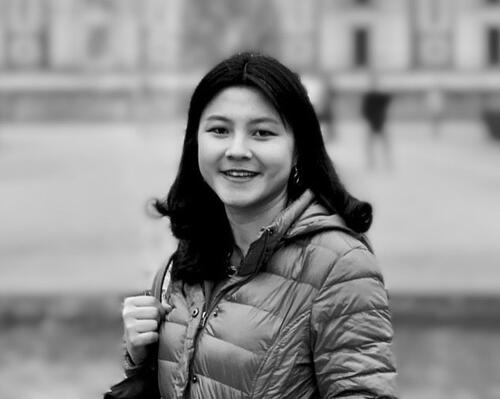
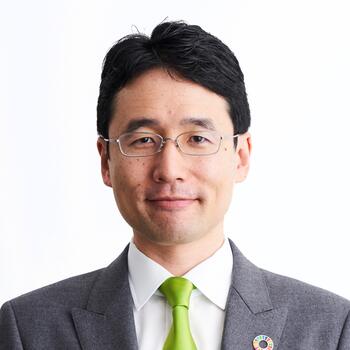
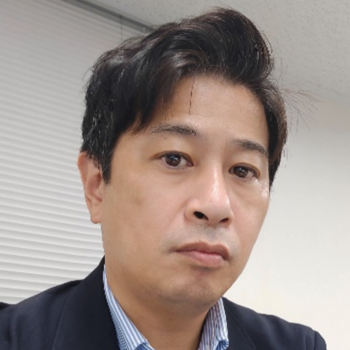
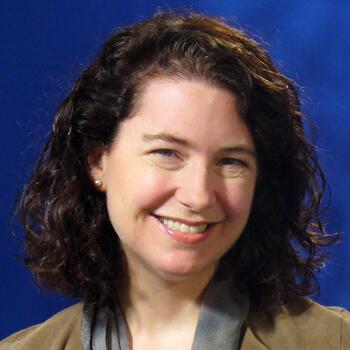
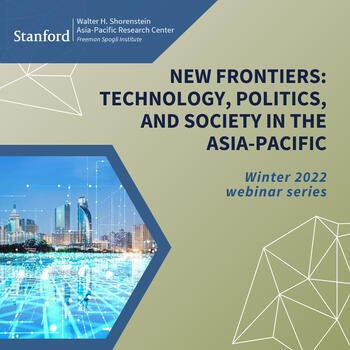
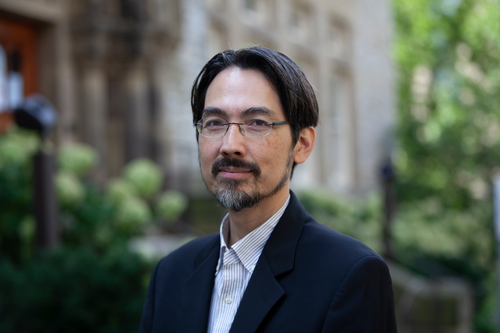
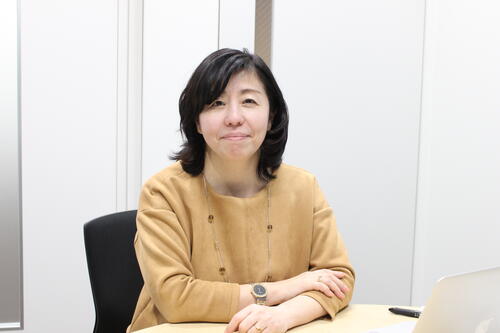


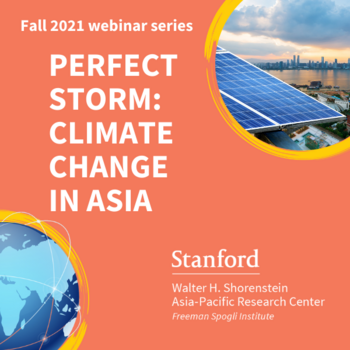



 Mr. Ban Ki-moon, Chairman of Ban Ki-moon Foundation for a Better Future, 8th Secretary-General of the UN
Mr. Ban Ki-moon, Chairman of Ban Ki-moon Foundation for a Better Future, 8th Secretary-General of the UN
